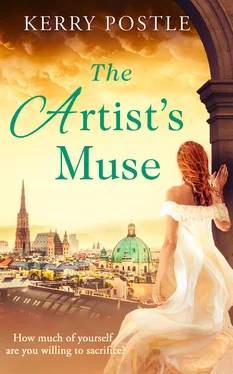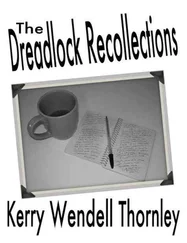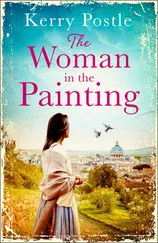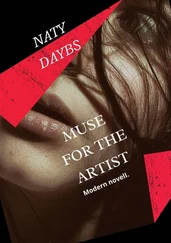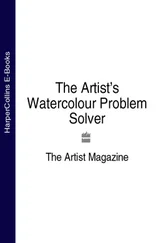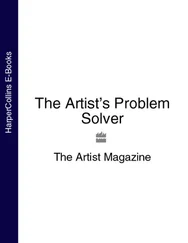Yet I for one was pleased to be going on this adventure. I had never been on a train before and the second the doors slammed shut, the whistle blew, and the engine started to hiss and puff its way out of the station, I was hypnotized. As I looked through the frost-framed windows, so the train took me on a mesmerizing trip past ice swords hanging from snow-tipped trees, single magpies frozen on walls, field upon field of virgin-white snow increasingly disturbed by man the closer we got to the city – and then there was bustle.
We had arrived in another world. We stumbled out of the carriage, our belongings slapping down on the stone platform like dead dogs behind us, our eyes taken this way and that by the coming, going, dashing, crashing, and hurtling in every direction of the bodies now swarming around us. Overwhelmed and in the way, we shuffled, dodged, and collided our way out of the station, the mist of the new gradually lifting to reveal, to my delight, a world of possibilities.
Velvet bows and fur trims whispered to me of riches. Well-soled, perfect boots tapped out the rhythms of success. Education and employment would be ours in this twinkling land of plenty.
I failed to notice my mother’s face, grief-grey, her brow furrowed by the yoke of responsibility, as she led us out into the cold Vienna air.
Like ducklings, we followed her, single file, climbing onto a busy tram, which drove us round the Ringstrasse. Grand and wide, it encompasses Vienna’s heart, and it shone that day, like a band of gold encrusted with monumental jewels shimmering against a heavy sky. Transfixed, I dropped my head against the window, the plump whiteness of my cheek squashed flat against its glass like a suction cup while my mind conjured up a waltzing world of sparkling interiors and sweeping staircases as dazzling façades danced before my eyes.
And I let myself dream of an opulent world, full of luxury, laughter, and ease, of all the magic I would find within this golden ring, encircling as it did this capital of empire. For a little girl like me, with her imagination full of grand balls and princes (who weren’t going to die in the night), the Ringstrasse was an ideal place to be.
The tram juddered. It veered to the right, crossed over connecting lines. But my cheek, momentarily squelched out of position, soon settled back into place while I now marvelled, dribble trickling down my chin, at the mannequins in ballgowns in the glittering window displays of a shopping street. Back in my innocent dream world once more I wondered which dress I would wear to the ball in the house with the sweeping staircase.
Yet in a second, with the blast of a klaxon and the scream of a horse, the spell was broken. Followed closely by the impact.
Your world, the way you see it, can change in an instant.
With the dull thud of metal and wood on flesh I was violently shaken out of my reverie. Something terrible had happened. Within seconds, hordes of people, shouting out excitedly in unrecognizable languages, appeared out of nowhere. It was as if they had pulled themselves up through the cracks in the cobblestones, their sewer-drenched poverty tainting the golden streets of the city of my dreams. Replacing fur-trimmed coats with filth-edged jackets; taffeta ballgowns with worn, ripped clothes.
What did they want? Why were they shouting? The travellers on the tram stood up to find out, blocking my way, though sounds of ugliness pushed their way through. It was only when the tram pulled away that I saw the encircling crowd: baying hounds around their weak and injured quarry. I heard a voice say, ‘’E’ll not get as far as the knacker’s yard,’ but I had no real grasp of what it was that I saw that day, even though I sensed its menace. I dream about it still.
However, if the accident had disturbed me, it was clear, from her trembling fingers, that it had disturbed my fragile mother more. She placed a shaking hand on my shoulder. It was time to get off.
She stood up; we followed, watching her exhausted frame nearly collapse as she struggled to lift her bag off the tram. I rushed to help her though she pointed me to little Olga who’d been lifted off the tram by a foreign-looking young man with a thick moustache and a wavy mop of dark hair, a book in a foreign language peeping out of his coat pocket. I said thank you and he nodded. I suspect that he wasn’t a true Austrian.
‘I’m so proud of you, Wally; you’re such a good girl.’ My mother sighed heavily when we’d all made it to the pavement. She gently pushed the hair away from my eyes, before kissing me on the head with a barely audible, ‘I can manage now. Please don’t worry.’ But she couldn’t. And I did.
As we stood there, an old, well-dressed man approached us. Cupping his hand over his mouth, he spoke quietly into my mother’s ear, his eyes roaming furtively over Katya, Olga, Frieda, and me. She found the strength to turn down his kind offer of help that afternoon but as I watched her I wondered how long it would be before she buckled.
It was clear that she was – we all were – going to find it hard to survive in this place of extremes. My poor, sweet, weak mother, her light frame resuming her heavy walk, tears rolling silently down her face, leading us to our new lives with all the enthusiasm of the condemned to the gallows. We knocked on the door of number 12 Favoritenstrasse. We waited for Frau Wittger to open the door with the chipped black paintwork. We had arrived in Vienna.
Chapter 1
The wind is cutting and the trees bare. It will not be easy. But I am twelve years old. We are at number 12 Favoritenstrasse. And I take this as a sign. It is time for me to stand tall, grow up, and look after the people I love. Mama knocks on the door. I stand behind her, holding myself as upright as I can after dragging two deadweight bags – mine and Olga’s – all the way from where we got off the tram.
It’s difficult to even stand (and as I glance round at Olga, whose head is against my skirt, Frieda who’s sitting on her own bag, and Katya who’s standing protectively behind the two of them, I see that I am not the only one of us having trouble), yet I grit my teeth knowing that I will be able to remove my boots with gaping holes in their soles very soon. And I will be strong. No one has come to answer the door to us yet. As I lean past Mama I wonder whether I have grown or she has shrunk since we caught the train from Tattendorf. Either way, one of us has changed. I knock on the door with more force.
As I wait for it to be answered, Mama fidgets and turns the scrap of paper over and over in her hand. She reads it again, just to make sure we’re at the right address and when Frieda asks, ‘Is this it?’ Mama looks to the heavens. I just think: twelve and 12. How could it not be?
Then the door collapses inwards. It’s pulled back with a force so fierce I expect to see cracks in the white plaster of the walls that surround it.
An elderly man, once he’s picked himself back up, stands in the doorway, stopping momentarily to draw a flask to his thirsty lips. He’s so close to us that I can’t fail to see that he has an oversized red nose from which veins trace across his cheeks like tributaries on a map; the whites of his eyes are yellow. He looks the worse for wear, no doubt due to the liquid contents of his flask, which he attempts to drain by holding it upside down until he’s drunk every last precious drop within. He is an intriguingly strange and disturbing sight on this cold and wintry day.
‘… but they’ll be here in a minute,’ a woman’s voice pipes up. ‘You’ve got to go.’
A small, elderly woman with messy grey hair – despite its being pinned back in a bun – now stands at the open door, pushing the man with the flask over the threshold. An evil old crone pops into my mind. Will she lure us in? Pop me, Katya, Olga, and Frieda in the oven? Cook us? Eat us? But I push this wicked witch on through before she sets up permanent residence in my imagination. I never did like the stories she was in.
Читать дальше
